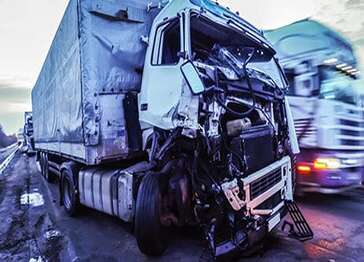Search

In the chaotic aftermath of a collision, it’s essential for all parties involved to remain at the scene, ensuring that proper procedures are followed and that everyone is safe. However, when a truck driver runs after a collision, the consequences can be severe and far-reaching. This blog explores the legal, financial, and personal repercussions of such an action.
In the event of a collision, it’s crucial for the truck driver to stay at the scene and follow the appropriate steps:
Running from the scene of a collision is a grave mistake with far-reaching consequences. From severe legal penalties to financial ruin and personal hardship, the repercussions can alter a truck driver‘s life irreversibly. It’s always in the best interest of the driver to stay at the scene, ensure everyone’s safety, and follow legal protocols. Making the right decisions in the immediate aftermath of a collision can significantly impact the outcome and help avoid compounding the initial incident with additional legal troubles.